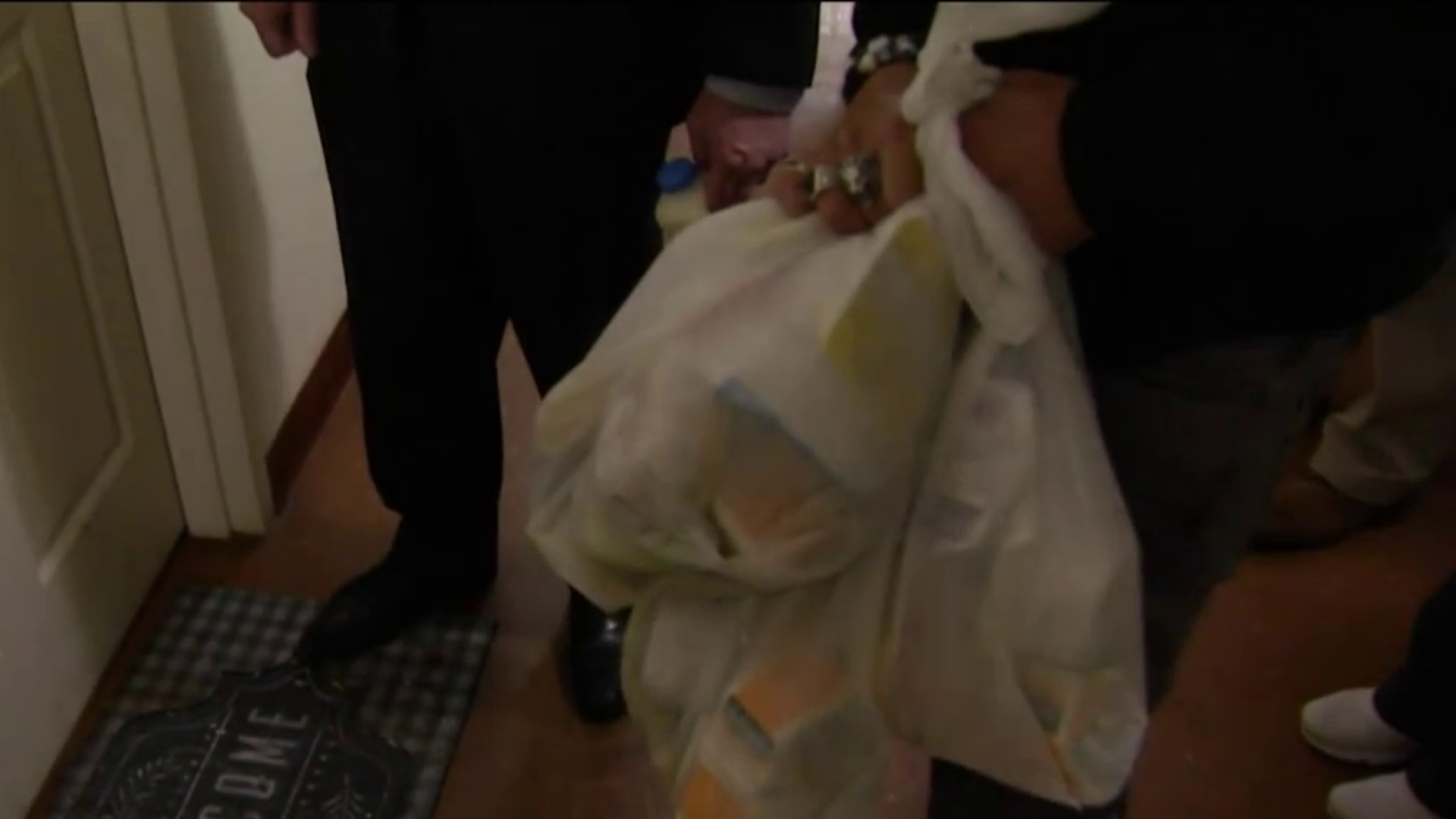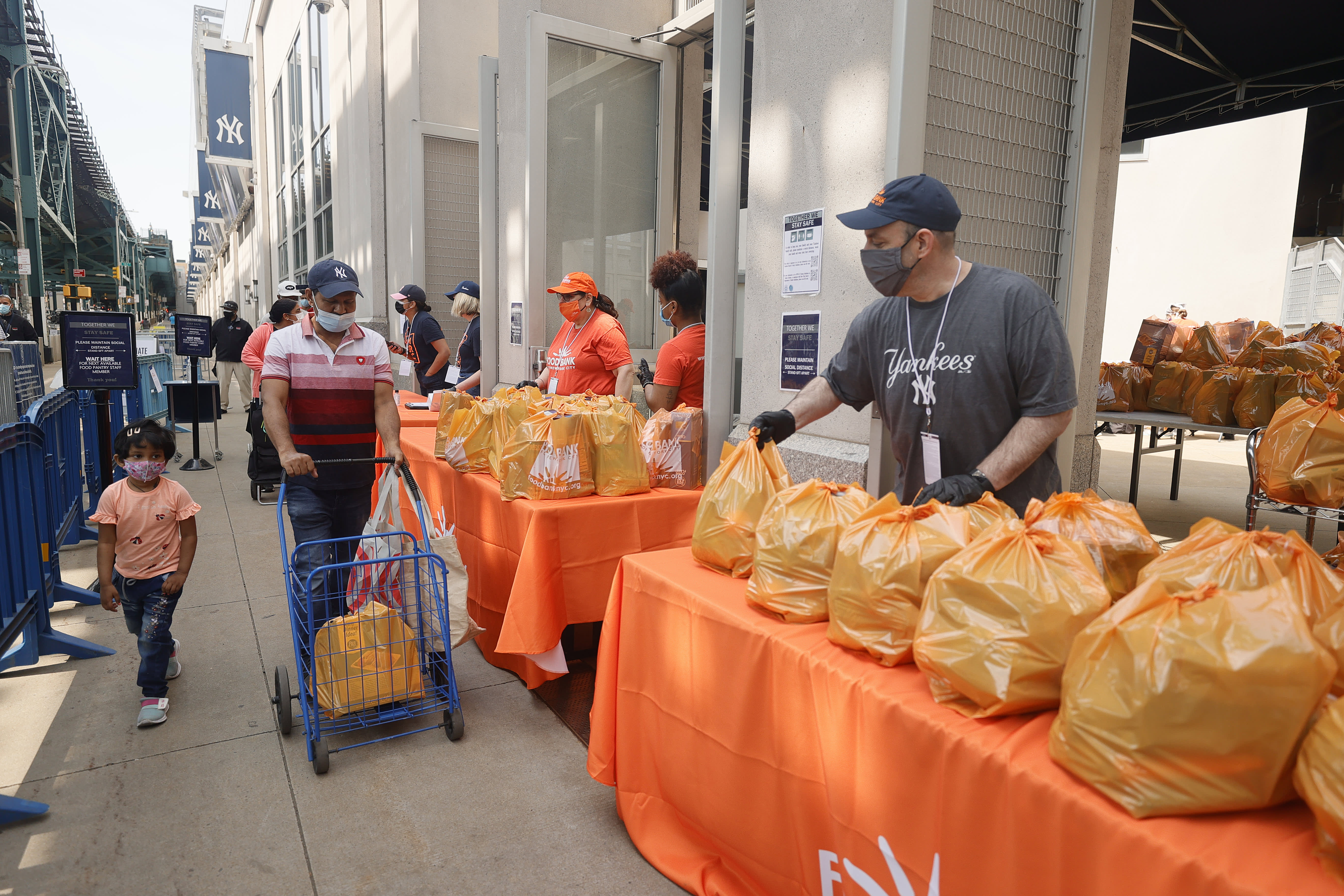Advocates in Vermont are promising to keep the pressure on policymakers, with a goal of sharply reducing and eventually ending hunger in the communities they serve.
The issue came into sharp focus at the start of the COVID-19 pandemic, and it remains a problem for many people.
Chereyl Raffuse, who was getting food Thursday from the Upper Valley Haven in White River Junction, said she often sleeps in her car if she can't crash with a friend.
Raffuse told NECN she lost her home when she couldn't work due to a serious illness.
Get Boston local news, weather forecasts, lifestyle and entertainment stories to your inbox. Sign up for NBC Boston’s newsletters.
Asked where she would be without food assistance from the Haven, Raffuse responded, "Broken, probably — looking for food at dumpsters behind restaurants, like a lot of other people have in the past."
The Upper Valley Haven serves people from both Vermont and nearby New Hampshire.
More on the fight against food insecurity
The often-hidden issue of food insecurity suddenly became very visible last year, with long lines at food shelves and meal pickup sites around the country.
Pre-COVID-19, one in 10 Vermonters didn't always have enough food to eat, according to the advocates at Hunger Free Vermont. However, UVM researchers found that number shot up to one in three facing hunger at some point in the pandemic.
Hunger Free Vermont said the number is lower now than that high crisis level, but it could not point to a current figure because research is still underway into the need.
"We have accomplished a lot, but there are problems that still remain," Michael Redmond, the executive director of the Upper Valley Haven, said at a gathering Thursday of advocates working on the front lines of food insecurity.
Anore Horton, the executive director of Hunger Free Vermont, said based on what the organization saw from the 2008 economic downturn, the recovery to pre-pandemic food need levels will likely take years.
"Hunger is the canary in the coal mine," Horton said. "Hunger is the first indicator that people's basic needs are not being met."
She and other advocates are calling for a high-level focus on ways to help, like by supplying breakfast and lunch to every kid in America's schools.
Karen White said she found herself using the Haven's food shelf after losing her boyfriend to cancer, making it even harder to stretch her limited budget.
"The prices of meat are going up, I heard," White said. "The price of gas — everything's going up."
She called the charity, its staff and its volunteers "wonderful" and "very helpful."
Rep. Peter Welch, D-Vermont, knows to expect considerable debate in Congress on spending levels on nutrition programs.
Welch pointed out that consensus on some measures may be achievable since hunger is a problem in red and blue states alike.
"When this pandemic hit, there was a rare moment of bipartisanship — a commitment to funding hunger programs," Welch told the group of advocates at the Haven. "We've got to sustain that."
Raffuse said she's eternally grateful to the individuals and businesses whose donations make the Haven's food shelf possible.
"Even if it's just the food out here, it's better than not eating at all, or scrounging up my last pennies to go to a fast food place," Raffuse said.
The food shelf customer said she'll be back to the Upper Valley Haven for help finding housing, so her car can stay — as it should be — just for transportation.



